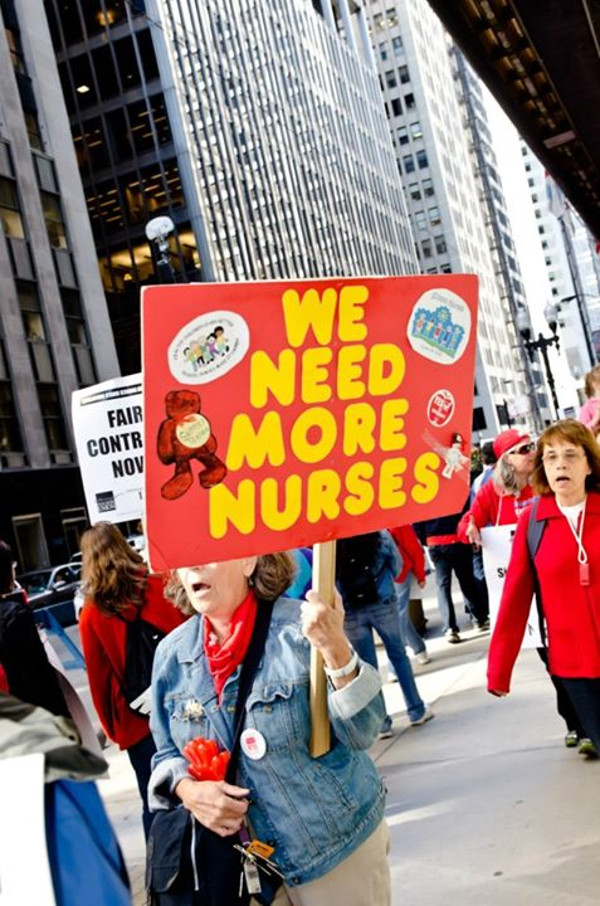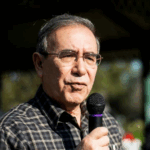
PHOTO/SARAH JANE RHEE
By Rita Valenti, R.N., and Salvador Sandoval, M.D.
ATLANTA, GA —Ebola is now in the United States. This fact can serve to clarify the international bonds of humanity and the urgent need to address such threats in a manner that protects international as well as U.S. health.
The Ebola virus is not new. It has been around at least since the early 1900s, isolated by dense rain forest in Central and Western Africa. However, deforestation, incursions into the bush, globalization, and international travel have now thrust it onto the world stage.
The mortality rate in Africa since the Ebola virus was first identified in 1976 averages 66%. Little has been done to find a cure or effective treatment, partly because it was restricted to Africa, which at that time was not attractive to multi-national companies. Finding a cure for Ebola was not considered a profitable investment opportunity.
The death of Eric Duncan in a Dallas hospital puts the United States mortality rate at 17%. Survival from Ebola that has killed 4700 in West Africa, but only one in the U.S. appears to be associated with early, appropriate and aggressive treatment. Mr. Duncan, was uninsured. Despite reporting that he had recently returned from West Africa, he was initially evaluated and released, only to be readmitted later when much sicker—and consequently exposing several others.
His death was not due to a lack of healthcare resources. Health Texas Resource, the parent company of that hospital boasts assets of over $5.3 billion. Eric Duncan shared the fate of thousands in America, Africa, and around the world who die needlessly every year because of austerity imposed by those with wealth and power in the midst of abundance.
The legacy of African slavery, colonialism, neocolonialism, murderous proxy wars, assassinations, chaotic incursions into the rain forests by ‘agri-greed’, oil, diamond and rubber companies and their rapacious resource extraction have laid a foundation for the ongoing polarization of wealth and poverty of global capitalism.
At a time of heightened need, less than 10% of world-wide medical research is dedicated to diseases that affect 90% of the world’s people. The World Health Organization lost 50% of its budget in the last 4 years. Instead austerity measures are imposed on countries that need the help
In the U.S. the situation is quickly becoming dismal as well. The Center for Disease Control has lost $600 million in funds since 2010 and the National Institute of Health lost $1.55 billion, while health corporations, pharmaceutical companies, and military contractors amass fortunes and power.
In the U.S. we are ill prepared to deal with threats such as Ebola because our public health infrastructure has been decimated, as our responses to Hurricanes Sandy and Katrina showed. The latest public health crisis still festers with Detroit’s water shut offs and the grave threat of dysentery and other diseases that simple sanitation and water supply can prevent.
Indeed, for the sake of humankind there can be no lasting solution to Ebola or any other public health crisis without the distribution of healthcare on the basis of need, not money. Ebola serves as a “wake-up” call. We are all part of an interconnected world, and our survival as a species depends upon acting on this fact.

